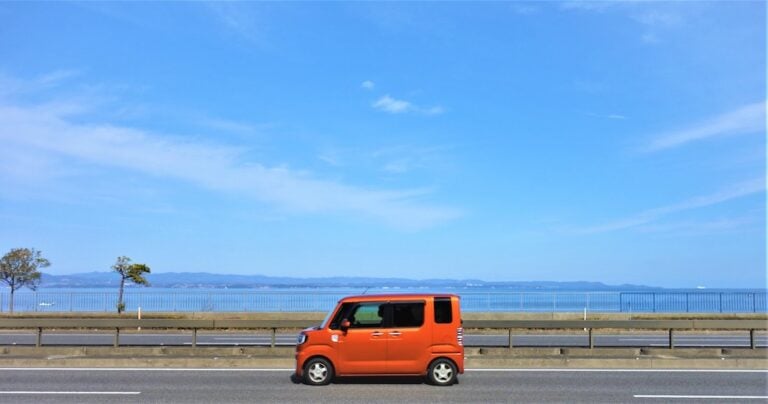
Japan is famous for its clean, reliable public transport. So much so that some people think that by moving to Japan, they probably never have to own a car again. If you’re living in a major city like Tokyo or Osaka, that may be true. But Japan is a much bigger country than that and if you live in a smaller city or in the countryside, public transport options become much more scarce.
If you’re working as an ALT for example, a lot of roles outside the major cities require driving. Even if you’re living in a larger city, having a car can open up a lot of the country to you in terms of getting to see places you wouldn’t ordinarily get to see. Let’s take a look at some things you need to be aware of if you’re thinking of buying a car or driving in Japan.
Kei Cars
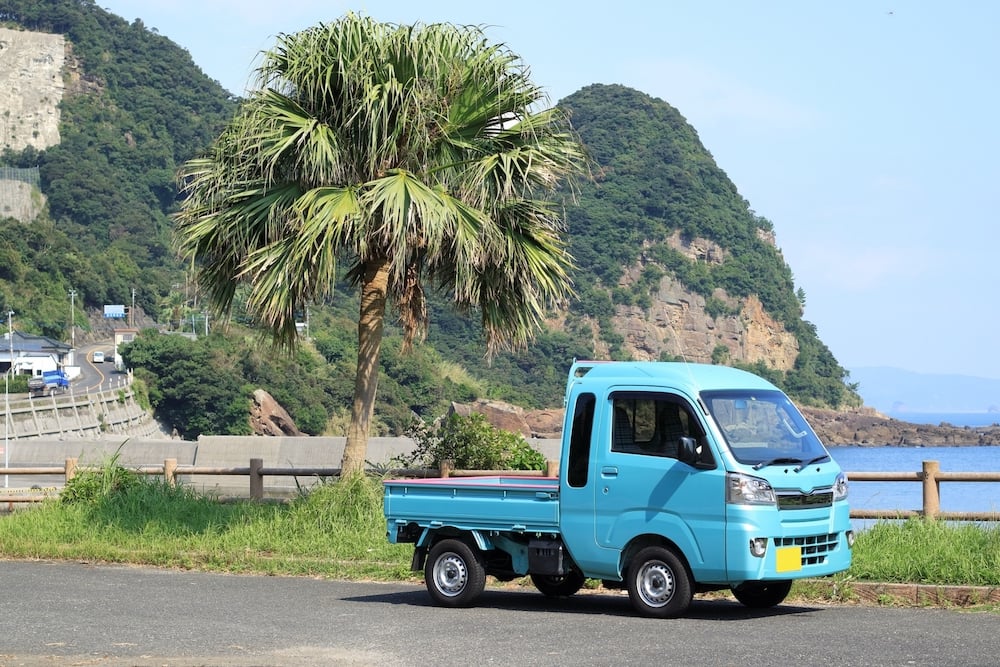
Aside from the usual selection of cars, Japan has a type of vehicle called a kei car (light car) with restricted body sizes and engine power. These cars are affordable, reliable and cheaper to register than standard sized vehicles so needless to say, they are popular in Japan. Kei cars can be distinguished from other vehicles on the road by their yellow numberplates. Because of their low registration and tax costs, these can make an ideal car to own in Japan though if you’re looking to do something like tow a trailer or move larger families around, obviously a larger car would be better. Driving through the countryside, you’ll also no doubt see lots of kei trucks which are very popular in agricultural areas.
The Shaken System
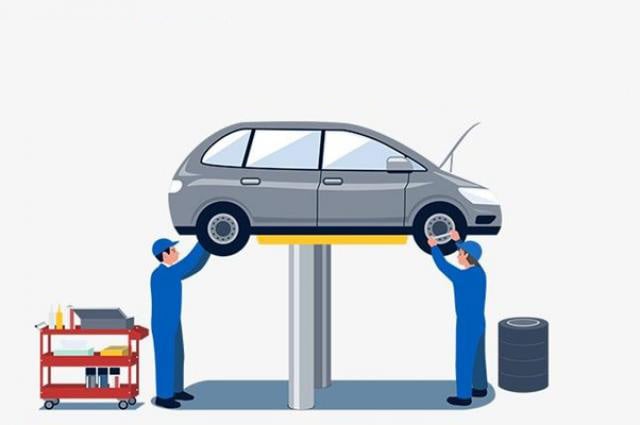
In order to register a car in Japan and to keep it on the road, it needs to pass a vehicle inspection every few years. This inspection is called shaken and its frequency depends on the type of car you have and how old it is, though in general it’s about every two years. The cost varies depending on how much work and maintenance needs to be done on your car. Obviously, the older your vehicle, the more expensive it gets to the point where you might sometimes be better off getting a new car.
The shaken system is expensive but there are actually many benefits to it. For one thing, it ensures your car is in good working order and probably not going to break down any time soon. Another benefit is that it takes some of the pain out of buying a used car in Japan. For a car to have passed shaken every two years, it generally has to be in fairly good condition so a car from a used dealership is more likely to be in better condition than it would be in countries that don’t have a similar system. This is something that anyone who’s ever bought a lemon of a used car can appreciate.
Rule Differences

Getting a Japanese driver’s licence depends on which country you’re originally from and your driving history. In terms of road rules, there is very little different about driving in Japan to most countries and the rules are largely the same aside from one or two very small differences.
Obviously the biggest difference if you’re coming from a country that drives on the right side of the road is adjusting to driving on the left. Japan has this in common with a few countries such as the UK, Australia and India but if you’re coming from the US or anywhere in Europe, suddenly having the driver’s side on the opposite side of the car is a big change.
In terms of rules, one to be aware of that may differ from your own country is stopping at railway crossings. Even if the gate is open for you to cross at a railway crossing, you must come to a complete stop and check both ways before driving through.
Traffic lights can also be a little different. In parts of the US, you are allowed to turn right on a red light into the street. In Japan, you are not allowed to turn at all and must remained stopped as long as the light is red. One other situation you might come across on a particularly busy street is a red light but with a green arrow pointing straight ahead rather than the left or right. This means that you can proceed straight but are not allowed to turn either left or right.
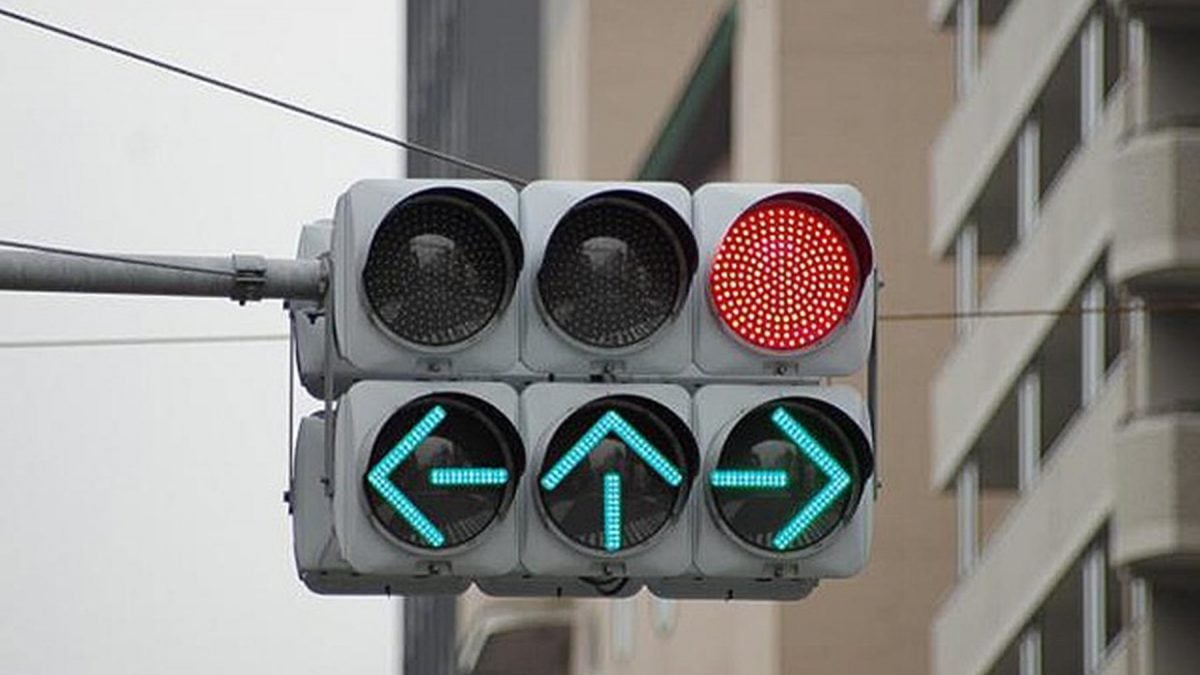
Something that surprised me personally was the vagueness around speed limits. Coming from a country where speed limits are very strictly enforced, I was initially shocked by how many people would zoom past me on the expressway while I was driving at the speed limit. Legally you have to drive at the speed limit and you can be fined as soon as you go over it, but many people seem to disregard this. Regardless of what other drivers do, my advice would be to stick to the speed limit. The police do occasionally set up road side stations to catch people speeding, even in seemingly remote parts of the countryside.
Other Costs
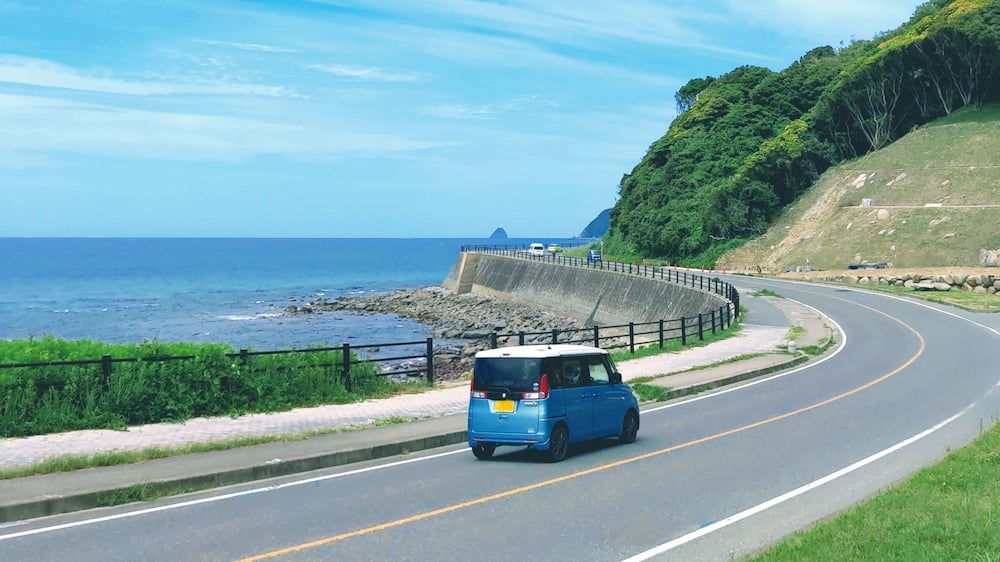
Parking is kind of a precious commodity in Japan and parking fees are a reason that many people living in larger cities tend to eschew owning a car. Renting a house or apartment does not guarantee you a car space and in most cases you often have to rent a space for your car separately. Costs for this can vary, from 2000 yen per month in the countryside, to over 100,000 yen per month in some parts of Tokyo. On the lower end in a major city you would be hard pressed to find somewhere under 10,000 yen per month. Some apartments are built with parking spaces but you’ll find that managing companies often lease these out to people who don’t even live in the building. In the cities at least, it’s all about timing and luck. In more rural areas, you’ll find parking more abundant and reasonably priced and there’s a good chance you’ll be able to find somewhere with a parking space included.
In terms of insurance, personal liability insurance is mandatory and is included with the price of shaken. This covers injuries and death to third parties involved in an accident but does not cover you as a driver or property damage to or caused by your vehicle. For this additional insurance, there are a range of insurance providers and options so its best to shop around and find out which works best for you.
One more cost to be aware of is expressway tolls. Japan has an excellent highway system with most of the country connected by expressways that will save you an enormous amount of time driving from point A to point B. Unfortunately these are toll roads and the fees are not cheap, quickly building up the further you travel. The convenience is excellent, but if you’re in a hurry to get to a particular destination, be prepared to pay for it.
Out and About in Japan
Owning a car and driving a car in Japan is a relatively pain free experience, especially if you’ve had experience owning a car in your home country. Even with Japan’s excellent public transportation options, having a car can open up many new opportunities, whether related to work or even just exploring the country. If you’re in a position to buy a car in Japan, its highly recommended.













